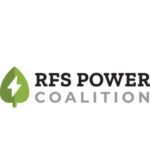RNG Coalition, ABC urge EPA to move forward with eRIN proposal
Energy Disrupter
ADVERTISEMENT
The Coalition for Renewable Natural Gas (RNG Coalition) and American Biogas Council on May 5 partnered with six other organizations to urge the U.S. EPA to promptly open the Renewable Fuel Standard to eligible sources of biobased electricity.
The RFS “set” proposed rule, issued by the EPA in December 2022, aims to set renewable volume obligations (RVOs) for 2023, 2024 and 2025. The proposed rule also aims to expand the RFS program beyond liquid renewable fuels to include certain types of renewable electricity used to fuel cars. Under the proposal, these electric renewable identification numbers (eRINs) could be generated for electricity produced from qualifying biogas and contracted for use in electric vehicle (EV) charging.
The RNG Coalition and ABC partnered with the Alliance for Automotive Innovation, Bridge to Renewables, The Business Council for Sustainable Energy, the Zero Emission Transportation Association, the National Milk Producers Federation, and the National Association of Clean Water Agencies to send a letter to EPA Administrator Michael Regan on May 5 urging the agency to move forward with its eRIN proposal.
The letter cites recent press reports that indicate the EPA may exclude or separate the eRIN provisions from the RFS “set” rule, which is set to be finalized in June. In the letter, the groups call on the EPA to finalize the eRIN framework as part of the RFS “set” rulemaking.
“Congress and EPA have clearly established a role for electricity in the Renewable Fuel Standard, and EPA’s eRINs proposal should not be further delayed or abandoned,” the groups wrote. “EPA approved the biogas electricity pathway in 2014, and Congress has expressed ongoing support for its implementation. The House and Senate Appropriations Committees, for example, have directed EPA to process electricity applications in annual reports dating back to 2018.
“EPA has long recognized the many environmental and economic benefits associated with eRINs, including critical reductions in greenhouse gas emissions,” they continued. “This long-awaited opportunity is timelier than ever. eRINs are complementary to other federal policies that encourage the production of renewable fuels and eRINs will directly support the electrification of the U.S. vehicle fleet. Collectively, we believe eRINs will support a broad market transformation of the electric vehicle and biogas power sectors.”
A full copy of the letter is available on the RNG Coalition website.
















